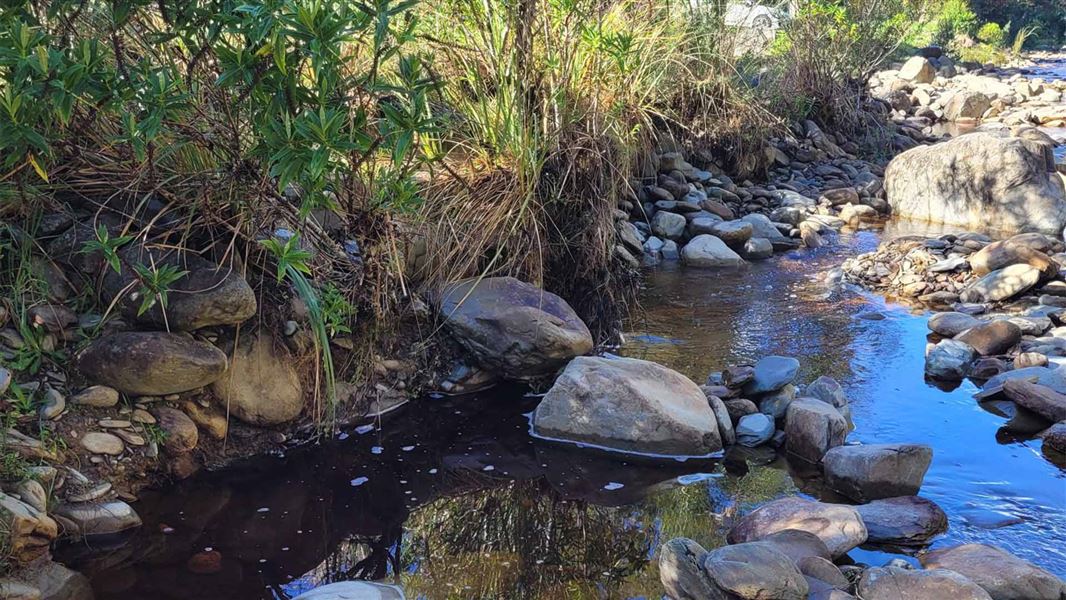Photo: NZ Department of Conservation
And the rangers want them to ‘fossick’ by the rules.
Fossickers site at the Slab Hut Creek Campsite, south of Reefton on the South Island’s west coast are creating problems by mining into the creek bank. Again.
NZ Department of Conservation (DOC) staff say that if nothing is done about it, the fossicking will ultimately result in the creek eroding into the campground.
Senior Ranger Darrell Haworth says the repairs to the site need a digger and will cost thousands of dollars.
“This is the second time we have had to carry out remediation to protect the camping area because of gold fossicking activity which means we have less budget to spend on visitor assets elsewhere,” Haworth says.
“As well as threatening the stability of the camping area, the unlawful digging potentially impacts the access road for the campground.”
He believes the high price of gold (NZ $5586 or A$5116 an ounce) is motivating the fossickers.
“A lot of effort has been put into these destructive earthworks,” Haworth notes.
“We’d like people to spread the word — the rules need to be followed when fossicking for gold at these sites.”
He explains there are signs in place alerting people to the key rules – stay in the active streambed, use hand tools only, leave all natural features undisturbed and ensure the area is returned to near its original condition.
OTHER AREAS
The Slab Hut Creek campsite is not the only area where destructive fossicking is happening.
“We are aware this issue of digging in banks and undermining vegetation is also occurring at the Moonlight Creek fossicking area and we have carried out legal proceedings in the past for people caught,” he says.
“Rangers are regularly in the area and will be monitoring these sites.”
Digging in banks on public conservation land in NZ is an offence under its Conservation Act as it interferes with or damages natural features.
The penalty for a person found guilty of such damage, he explains, is two years jail or a NZ$100,000 (A$91,260) fine — or both.
For a company, the fine is up to NZ$200,000 (A$182,520).
- Gold fossicking refers to using pans, shovels and sluice boxes to collect gold from stream or river.
- There are designated public gold fossicking areas in NZ.
- A low concentration of alluvial gold (found in soil usually around rivers and streams) can be found within all gold fossicking areas.
- Nine of New Zealand’s 19 gold fossicking sites are located on the South Island’s West Coast.
Source: NZ Department of Conservation
[/dt_vc_list]






